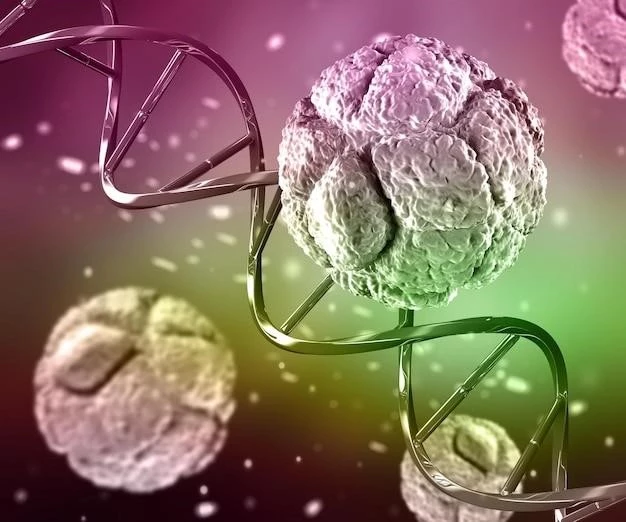Role of Complement Component Receptor 1 in Disease Pathogenesis
Understanding the mechanisms of Complement Component Receptor 1 dysregulation is crucial in disease pathogenesis. Explore therapeutic approaches targeting CCR1 and how genetic variants influence disease susceptibility.
Mechanisms of Complement Component Receptor 1 Dysregulation
When exploring the dysregulation of Complement Component Receptor 1 (CCR1)‚ it is essential to consider various factors that can impact its function. Dysfunction of CCR1 can arise from abnormalities in complement regulation‚ leading to excessive activation of the complement system and subsequent inflammation. Additionally‚ genetic mutations‚ environmental triggers‚ and autoimmune responses can contribute to the dysregulation of CCR1.
Moreover‚ interactions with other complement components‚ such as C3 and C5 convertases‚ can influence the signaling pathways involving CCR1. Imbalance in the expression levels of membrane-bound and soluble forms of CCR1 may also play a role in its dysregulation‚ affecting the downstream cellular responses.
Furthermore‚ studies have shown that certain diseases‚ such as autoimmune disorders and inflammatory conditions‚ can disrupt the regulation of CCR1‚ leading to aberrant immune responses and tissue damage. Understanding the intricate mechanisms underlying CCR1 dysregulation is crucial for developing targeted interventions to modulate its function and mitigate the associated pathogenic processes.
Therapeutic Approaches Targeting Complement Component Receptor 1
Developing therapeutic strategies that target Complement Component Receptor 1 (CCR1) holds promise in the treatment of diseases associated with dysregulated complement activation. One approach involves blocking CCR1 activation to prevent downstream inflammatory responses.
Targeted monoclonal antibodies or small molecule inhibitors aimed at CCR1 have shown effectiveness in preclinical studies and clinical trials. These interventions can help attenuate complement-mediated tissue damage and inflammation‚ providing a potential avenue for disease management.
Furthermore‚ modulation of signaling pathways associated with CCR1 can be achieved through the use of agonists or antagonists that regulate CCR1 activity. By fine-tuning the immune response via CCR1 modulation‚ therapeutic outcomes can be optimized for specific disease contexts.
Combination therapies targeting CCR1 along with other components of the complement system or immune signaling pathways may offer synergistic effects in controlling disease progression. Personalized medicine approaches that consider individual variations in CCR1 expression or genetic profiles can also enhance the efficacy of therapeutic interventions.
It is essential for ongoing research to continue exploring novel therapeutic avenues that target CCR1 to address the diverse pathogenic roles of complement dysregulation in various diseases. Collaborative efforts between clinicians‚ researchers‚ and pharmaceutical companies are paramount in advancing the development of targeted therapies for CCR1-related conditions.
Genetic Variants of Complement Component Receptor 1 and Disease Susceptibility
Understanding the impact of genetic variants of Complement Component Receptor 1 (CCR1) on disease susceptibility is crucial in unraveling the complex interplay between genetics and disease pathogenesis. Specific polymorphisms in the CCR1 gene can influence its expression levels‚ function‚ and interactions with other components of the complement system.
Research has identified associations between certain CCR1 genetic variants and an increased risk of developing autoimmune disorders‚ inflammatory conditions‚ and infectious diseases. These variants may alter CCR1 signaling pathways‚ leading to dysregulated immune responses and promoting disease development.
Furthermore‚ genetic studies have highlighted the importance of considering CCR1 variants in personalized medicine approaches‚ as individual genetic profiles can impact treatment outcomes and therapeutic responses. Identifying patients with specific CCR1 variants associated with disease susceptibility can help tailor targeted therapies and interventions.
Ongoing research focused on elucidating the functional consequences of CCR1 genetic variants in different disease contexts is essential for optimizing diagnostic strategies and treatment protocols. Collaborative efforts between geneticists‚ immunologists‚ and clinicians are instrumental in advancing our understanding of the role of CCR1 genetic variants in disease susceptibility and guiding precision medicine initiatives.
Complement Component Receptor 1 as a Biomarker for Disease Diagnosis
Utilizing Complement Component Receptor 1 (CCR1) as a biomarker for disease diagnosis offers a valuable opportunity to improve early detection and monitoring of conditions associated with complement dysregulation. Elevated levels of CCR1 or its altered expression patterns can serve as indicators of underlying immune dysfunctions and inflammatory processes.
Studies have demonstrated the potential of CCR1 as a diagnostic biomarker for autoimmune disorders‚ such as rheumatoid arthritis and lupus‚ as well as for infectious diseases where complement activation plays a significant role in pathogenesis. Detection of CCR1 in patient samples‚ including serum or tissue biopsies‚ can provide valuable insights into the immune responses driving disease progression.
Furthermore‚ the specificity and sensitivity of CCR1 as a biomarker make it a promising tool for distinguishing between different disease phenotypes and guiding treatment decisions. Combining CCR1 detection with other complementary biomarkers or imaging techniques can enhance diagnostic accuracy and prognostic evaluation.
As research continues to unravel the intricate roles of CCR1 in disease pathogenesis‚ leveraging CCR1 as a biomarker holds potential for facilitating personalized medicine approaches and optimizing patient care. Collaborations between researchers‚ clinicians‚ and diagnostic laboratories are key to translating the diagnostic utility of CCR1 into clinical practice for improved disease management and patient outcomes.
Immune Modulation through Complement Component Receptor 1 Signaling
Exploring the potential for immune modulation through Complement Component Receptor 1 (CCR1) signaling represents a promising avenue in therapeutic interventions aimed at regulating immune responses and inflammation. CCR1 plays a pivotal role in orchestrating immune cell recruitment‚ activation‚ and inflammatory cascades in various disease scenarios.
Targeting CCR1 signaling pathways can offer precise control over the immune response‚ allowing for modulation of autoimmune reactions‚ inflammatory conditions‚ and infectious responses. By manipulating CCR1 activation or downstream signaling events‚ it is possible to dampen excessive immune activation and prevent tissue damage associated with dysregulated immune responses.
Studies have highlighted the potential of CCR1 agonists or antagonists in fine-tuning immune cell functions and cytokine production‚ thereby influencing the overall immune landscape. Modulating CCR1 signaling presents a strategic approach to tailor immune responses towards a balanced and controlled state‚ mitigating the detrimental effects of hyperinflammation.

Further research on the mechanisms of CCR1 signaling and its interactions with other immune mediators is essential to harness the full therapeutic potential of modulating CCR1 in different disease contexts. Collaborative efforts across disciplines‚ including immunology‚ pharmacology‚ and molecular biology‚ are crucial in advancing our understanding of immune modulation through CCR1 signaling and translating this knowledge into innovative therapeutic strategies.
Complement System Regulation and Complement Component Receptor 1
Understanding the intricate relationship between Complement Component Receptor 1 (CCR1) and the broader regulation of the complement system sheds light on the complex mechanisms underlying immune responses and disease pathogenesis. CCR1 functions as a key player in the complement cascade‚ interacting with other complement components to modulate immune activation.
Regulation of CCR1 expression and activity is tightly controlled to maintain immune homeostasis and prevent excessive inflammation. Dysregulation of CCR1 or aberrant complement activation can lead to unrestrained immune responses‚ contributing to the development of autoimmune diseases‚ inflammatory disorders‚ and infections.
Research focused on elucidating the molecular interactions between CCR1 and complement regulators‚ such as Factor H and C1 inhibitor‚ provides insights into the delicate balance required for proper complement system function. Imbalances in these regulatory processes can disrupt CCR1 signaling and downstream immune activation.
Therapeutic strategies targeting CCR1 aim to recalibrate complement system regulation‚ restore immune balance‚ and alleviate disease symptoms. By enhancing our understanding of the crosstalk between CCR1 and complement regulatory proteins‚ novel treatment approaches can be developed to address complement dysregulation and its detrimental consequences.
Collaborative efforts among immunologists‚ pharmacologists‚ and clinicians are essential in further unraveling the complexities of complement system regulation and its interplay with CCR1. Advancing our knowledge in this area holds promise for the development of precision therapies that target specific points of complement regulation to modulate immune responses and combat various diseases.
Future Perspectives on Complement Component Receptor 1 Research
The future of Complement Component Receptor 1 (CCR1) research holds immense potential for advancing our understanding of immune dysregulation and disease pathogenesis. Continued exploration of CCR1 in various disease contexts is essential for uncovering novel therapeutic targets and diagnostic biomarkers.
Investigating the molecular mechanisms governing CCR1 dysregulation and its impact on immune responses will provide crucial insights into the complex interplay between complement activation‚ inflammation‚ and disease development. This fundamental knowledge will pave the way for the development of targeted therapies that modulate CCR1 signaling with precision.
Future research endeavors should focus on elucidating the role of CCR1 genetic variants in disease susceptibility across diverse populations‚ enabling personalized medicine strategies tailored to individual genetic profiles. Integrating genomic data with clinical observations will enhance our ability to predict and manage disease outcomes effectively.
Exploring the potential of CCR1 as a biomarker for disease diagnosis requires comprehensive validation studies and integration into clinical practice. Harnessing the diagnostic utility of CCR1 in conjunction with other biomarkers and imaging modalities will revolutionize early detection and monitoring of diseases associated with complement dysregulation.
Collaborative research initiatives that merge expertise from immunology‚ genetics‚ pharmacology‚ and biotechnology will drive innovation in CCR1 research. By fostering interdisciplinary collaborations and leveraging cutting-edge technologies‚ we can unravel the full spectrum of CCR1 functions and translate scientific discoveries into tangible clinical benefits.
Embracing a forward-looking approach to CCR1 research will not only enhance our knowledge of immune modulation and complement system regulation but also pave the way for groundbreaking advancements in precision medicine and personalized healthcare. The journey ahead promises exciting breakthroughs that will revolutionize our approach to disease management and treatment strategies.
